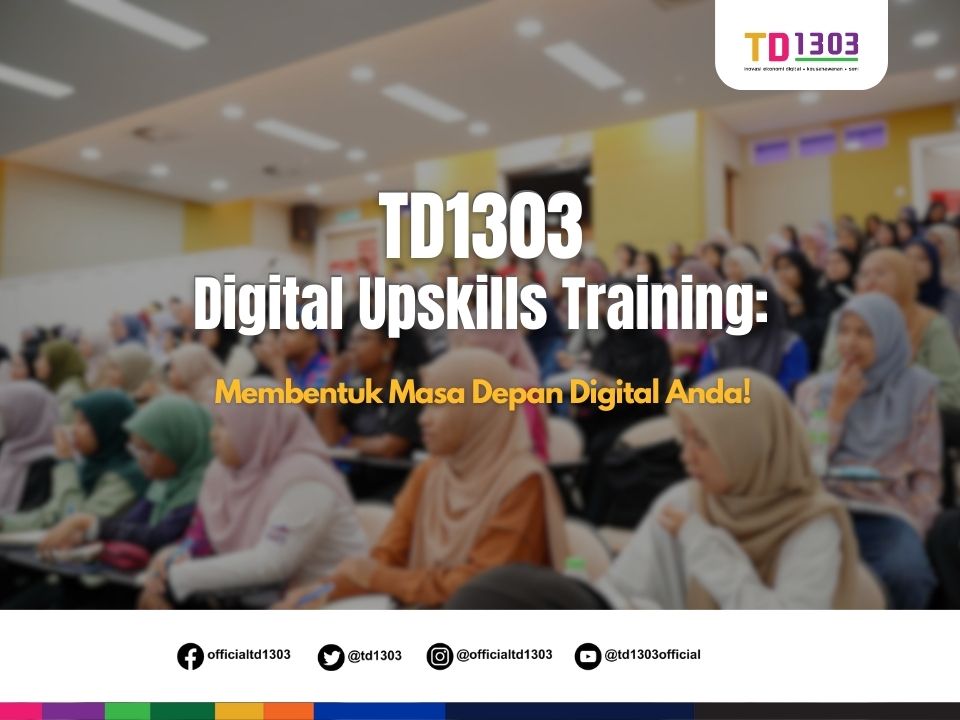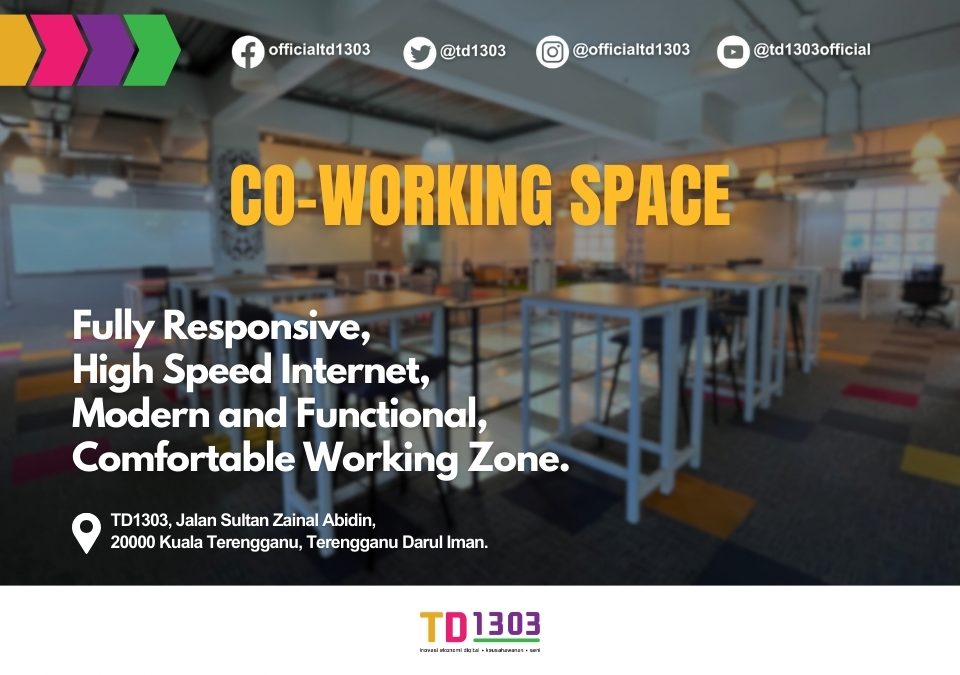
Mastering Pay-Per-Click (PPC)
09/08/2023
Digital Upskills Training
10/01/2024Introduction
In the heart of Kuala Terengganu, a dynamic force is reshaping the traditional workspace landscape. TD1303, a forward-thinking company, has embraced the concept of co-working spaces to enhance collaboration, creativity, and productivity among its employees. This article explores the significance of co-working spaces within TD1303 and the positive impact they have on the company’s culture and overall work environment, as well as their broader contribution to the local society.
By establishing co-working spaces, TD1303 not only fosters a collaborative atmosphere among its employees but also extends its influence to the surrounding society. The shared workspaces serve as hubs for professionals from diverse backgrounds, providing a platform for networking and knowledge exchange within the local business community. As a result, TD1303 becomes not just a workplace but a catalyst for community engagement and professional development.
Moreover, the co-working model adopted by TD1303 reflects a broader trend in modern societies, where traditional office structures are evolving to accommodate a more flexible and interconnected workforce. This approach not only benefits the company but also contributes to the societal shift towards more adaptable and collaborative work environments.
The Concept of Co-Working Spaces:
Co-working spaces, a phenomenon gaining momentum globally, have emerged as transformative hubs that transcend the confines of traditional office settings. Their popularity is rooted in their capacity to break down conventional workplace barriers and cultivate an environment conducive to collaboration, innovation, and heightened productivity.
The concept of coworking space represents a paradigm shift in traditional approaches to work environments. It involves shared workplaces where individuals from different professions, companies, or freelance backgrounds work side by side in a communal setting. The core principles of coworking spaces revolve around collaboration, community, flexibility, and a departure from the conventional office structure.
TD1303’s Co-Working Space:
Located in the bustling centre of Kuala Terengganu, TD1303’s co-working space is a vibrant hub where employees from various departments converge to work on projects, exchange ideas, and engage in cross-functional collaboration. The space is designed to be open, flexible, and inclusive, promoting a sense of community among employees, startups, freelancers and remote workers.
The conventional paradigm of the workplace is undergoing a revolutionary transformation, and at the epicentre of this metamorphosis stands Terengganu Digital 1303 (TD1303). Nestled in the vibrant heart of Kuala Terengganu, TD1303 has chosen to redefine its workspace by embracing the concept of co-working spaces. This essay aims to delve into the manifold benefits that have ensued from this bold move, exploring how the adoption of co-working spaces has propelled TD1303 into the vanguard of modern corporate culture.
1. Facilitating Collaboration and Nurturing Creativity
At the core of TD1303’s co-working space philosophy lies a commitment to dismantling silos and fostering collaboration among its diverse workforce. This open-plan environment has become a crucible for innovative ideas, acting as a catalyst for creativity. Breaking away from the confines of traditional cubicles, employees find themselves in an atmosphere that encourages free thought and the cross-pollination of ideas. The result is a workplace that thrives on dynamic collaboration, transcending the limitations of departmental boundaries.
2. Flexibility as a Cornerstone of Employee Empowerment
TD1303’s co-working spaces are emblematic of a fundamental shift towards flexibility and adaptability. Recognizing the varied needs of its workforce, the company has designed a space that is malleable to individual preferences. Whether employees seek solitude for focused tasks or a communal setting for team projects, the co-working space adapts seamlessly. This flexibility extends beyond spatial considerations, empowering employees to manage their work schedules autonomously, fostering a sense of responsibility and work-life balance.
3. Networking Across Departments
The co-working space at TD1303 serves as a nexus for cross-departmental networking. It facilitates serendipitous encounters and spontaneous collaborations, offering employees a chance to gain insights into different facets of the organization. This interconnectedness not only enriches professional relationships but also fortifies a collective sense of purpose and unity among the workforce.
Conclusion
Terengganu Digital 1303’s adoption of co-working spaces signifies a transformative shift in corporate culture, prioritizing collaboration, flexibility, and employee well-being. This move goes beyond a physical workspace redesign, fostering a thriving ecosystem of innovation and professional growth. TD1303 stands as proof of the transformative power when a company breaks free from tradition and embraces the future of work.

